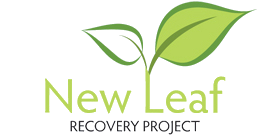World Suicide Prevention Day

The Power of Compassionate Conversations in Addiction Recovery
At New Leaf Recovery, we provide a safe space for individuals on their journey to addiction recovery. On this World Suicide Prevention Day, we are reminded of the profound importance of the language we use when discussing sensitive topics like suicide, especially within the context of addiction recovery. Our commitment extends beyond helping individuals overcome substance abuse; it also encompasses fostering understanding, empathy, and support for mental health challenges that often coexist with addiction.

Understanding World Suicide Prevention Day
World Suicide Prevention Day is an annual global campaign that raises awareness about suicide prevention. Held on 10th September it serves as a crucial reminder of the need to prioritise mental health and provide resources to those who are struggling. At New Leaf Recovery, we recognise the strong link between addiction and mental health, making this day even more significant in our mission to guide individuals toward lasting recovery.
Call Us Today: 0300 999 0330The Power of Language
Language holds immense power. It can either perpetuate stigma or create a safe environment for open discussions. When we address suicide and mental health with empathy and sensitivity, we contribute to breaking down barriers that often hinder recovery. Just as we choose our words carefully to support individuals on their path to sobriety, we must extend the same thoughtfulness when discussing their mental and emotional well-being.
Compassionate Conversations
Initiating a conversation about suicide or addiction requires delicacy and genuine concern. For those battling addiction, discussing suicidal thoughts can be particularly challenging. However, asking directly and compassionately can provide clarity and pave the way for appropriate action. Samaritans, in collaboration with other mental health groups, emphasises that it’s crucial to ask open questions like:
- I’ve noticed that you’ve been going through a tough time lately. How are you feeling about everything?
- I’m here to listen whenever you’re ready to talk. Have you thought about what kind of support or help might be beneficial for you right now?
- Is there something specific that’s been bothering you? I’m here to support you in any way I can.
- It’s okay to ask for help when things feel overwhelming. Have you ever considered reaching out to a professional or a support group?
- I believe in your strength and resilience. If you’re open to it, we can explore different ways to support your well-being and recovery together. What are your thoughts?
- Are you thinking of ending your life because you want to be dead, or is it because you want the situation you’re in or the way you feel to stop?These questions, asked with empathy, can make a world of difference for someone who is struggling. Remember, the goal is to create a safe and non-judgmental space for the person to express their feelings and thoughts. Avoid putting pressure on them or making them feel forced into a decision. Be patient and willing to listen, and let them know that seeking help is a sign of strength, not weakness.
Starting the Conversation
At New Leaf Recovery, we understand the significance of starting a conversation with someone you’re concerned about. Here are some tips we recommend:
- Choose the Right Time and Place: Find a comfortable and distraction-free setting for the conversation.
- Use Open-Ended Questions: Encourage dialogue with questions that require more than a yes or no response.
- Listen Actively: Provide a safe space for them to express their feelings without judgment.
- Show Empathy: Let them know you care about their well-being and are there to support them.
- Avoid Prescriptive Advice: Refrain from imposing your views or telling them what to do.
Mindful Word Choices & Language Usage
When discussing suicide, mental health, and addiction recovery, the language we use matters. New Leaf Recovery encourages the following language choices:
Do
- Share sources of support and stories of hope.
- Report harmful content.
- Ask directly if someone is feeling suicidal.
Don’t
- Avoid sharing unsafe online content.
- Refrain from mentioning specific methods or locations of suicide or going into detail regarding substance abuse.
- Steer clear of judgmental language.
Language Transformation
Instead of saying “committed suicide,” use “took his/her/their own life” or “died by suicide.” This shift in language removes stigma and acknowledges the complex nature of mental health struggles. Similarly, don’t refer to someone in active addiction or recovery as an “addict,” as this can be extremely harmful.
Break the Silence: Healing Conversations in Addiction Recovery
As we commemorate World Suicide Prevention Day, New Leaf Recovery reaffirms its commitment to promoting understanding, empathy, and healing. By embracing compassionate conversations and fostering a safe space for discussing sensitive topics, we contribute to the well-being of individuals on their journey to addiction recovery. Remember, your words have the power to inspire hope, break stigma, and save lives instead of causing harm. Choose your words carefully.
Want to begin your addiction recovery journey? Reach out today!
Call Us Today: 0300 999 0330Receive a Free Call Back
"*" indicates required fields
Our Complete Recovery Journey - from your initial enquiry, all the way through treatment and beyond into ongoing support, New Leaf Recovery are there to guide and support you.
New Leaf offers a complete journey of treatment - from initial detoxification and rehabilitation to ongoing support, including aftercare, family support, and beyond into long-term recovery.
Getting the right accommodation enables us to provide the right backdrop for our recovery methods. Any form of rehabilitation needs to happen in a safe, comfortable, secure and friendly environment.
Receive a Free Call Back
"*" indicates required fields










